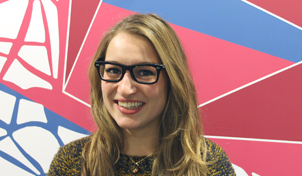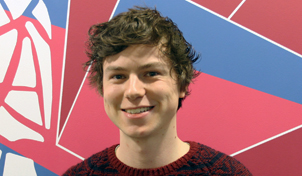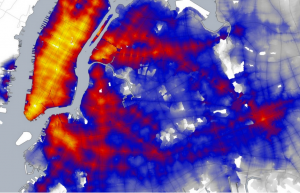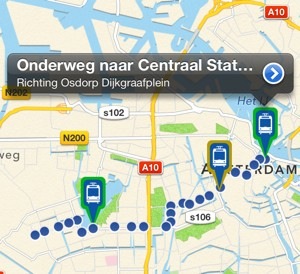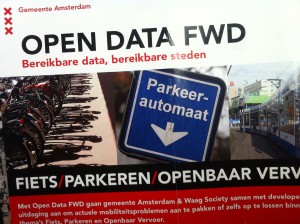 Last Thursday we did a little field trip. First we had our amazing workshop with Charlie Mulholland about problem definition, followed by the inspiring talk of Jan Rotmans about the city in transition. Now something completely different: Open Data FWD. Facilitated by Waag Society in the interest of the four largest municipalities of Holland, it was time to start thinking about open data.
Last Thursday we did a little field trip. First we had our amazing workshop with Charlie Mulholland about problem definition, followed by the inspiring talk of Jan Rotmans about the city in transition. Now something completely different: Open Data FWD. Facilitated by Waag Society in the interest of the four largest municipalities of Holland, it was time to start thinking about open data.
Andrew Byrd, Open Trip Planner
Andrew Byrd is de developer of Conveyl. His main story was about Open Trip Planner, a real time data visualisation application for transport routes. These maps run on Google engine. The precise location of public transport vehicles is tracked and illustrated on the map. The application focuses on public transport, but also includes bicycle and walking. Different from other trip planner applications, Open Trip Planner offers a lot of interesting options. For example, you can choose to take the safest cycling route or the route that is the least uphill.
Andrew also showed that trip planning applications can be visualised in different ways. Conveyl offers a geographical style map which shows the estimated travelling time, visualised on the map in different colours. This image shows the reachability of Manhattan, where all the warm colours can be reached within an hour.
Overall the Open Trip Planner and Conveyl are very interesting applications, maybe we can use some features as inspiration for the development of our project!
David Demper, Snappcar
David Demper is the founder of Snappcar. A simple yet promising concept; sharing your car when you do not make use of it. Research has shown that cars are generally used for one hour a day. David went further on this mindblowing thought. He came up with some interesting concepts that are relevant for our project. Snappcar is not a product, it’ s a service, a solution that tears down barriers between people. Snappcar works because it makes data available through crowdsourcing, and so it enables the full potential of the available information.
Break out session
Then it was time for our breakout session, a nice relieve after listening for a couple of hours. During the session we got some insights for our problem definition in relation to cycling. The target groups within the subject were divided in four sections: students, commuters, pedestrians and vulnerable cyclists (children, parents, elderly). Eventually we had a useful problem analysis for cycling in Amsterdam with input from multiple perspectives on the subject. All the insights from different perspectives were of great use for our project. What kind of problems are cyclists running into in large cities? We ended up with four sheets full of problems we wouldn’t even consider in the first place. The diversity in problems made us aware of current issues.
Erik Romijn, Openbaar Vervoer
Erik Romijn is the developer of the application Openbaar Vervoer. A real-time public transport schedule for routes in the Netherlands. From which platform does the bus depart? Are other lines still running properly? When will this exactly arrive at that stop? He pointed out that a lot of public transport applications often provide inaccurate information. For example, some stops would have a sign that said: accessible for wheelchairs, while they don’t. It was interesting that he didn’t only tell about features of the application, but he emphasised on keeping the data up-to-date and maintain the validity of the application.
Open Data from municipalities
Next up, municipalities of the four great cities in the Netherlands revealed which open data already was available and which data would be accessible in the near future. Fun examples were: real time traffic light data or real time cyclist counting. They challenged developers to come up with smart applications to make the best use out of the open data. As a motivation factor they added a decent winners price to the best open data application.
After having a splendid exotic dinner the day came to an end. We gained knowledge about open data and the possible use of it. We got new insights from different user perspectives on the issue of cycling in Amsterdam. We also expanded our network within the cycling and open data community. Tired as much as inspired we left the Waag to let all the new knowledge sink in.




